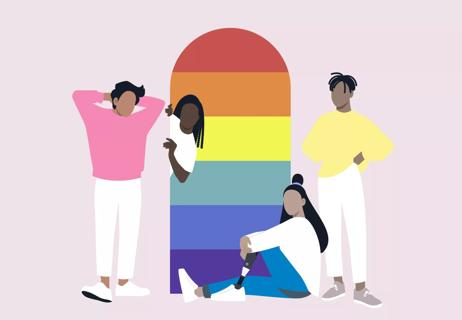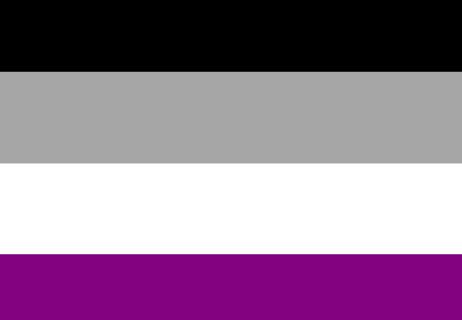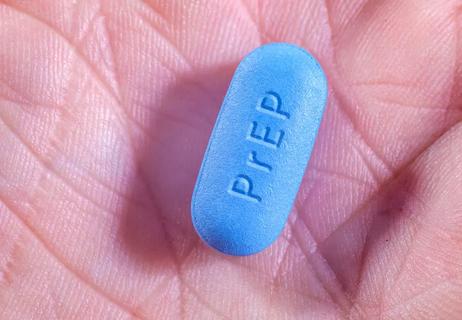Advertisement
Research healthcare providers who are welcoming and affirming, and advocate for yourself

Finding the right healthcare provider can sometimes be challenging, but it’s especially difficult for the most vulnerable members of the LGBTQIA+ community who are at higher risk for discrimination.
Advertisement
Cleveland Clinic is a non-profit academic medical center. Advertising on our site helps support our mission. We do not endorse non-Cleveland Clinic products or services. Policy
According to the 2015 U.S. Transgender Survey, 33% of transgender people reported at least one negative experience while visiting a healthcare provider, including refusal of treatment, harassment or physical or sexual assault. In that same year, 23% reported not visiting a healthcare provider when they needed to because they were afraid of being mistreated as a transgender person, while 33% didn’t see a doctor because they couldn’t afford it.
Of course, there are several nationwide health services available and some state clinics that are LGBTQIA+ friendly. But for many, it may be hard to find LGBTQIA+ competent healthcare providers or insurance coverage for gender-affirming services, especially for those living in poverty and more rural areas. Plus, it may not always be clear whether someone will welcome or support you in the way you need.
Luckily, according to transgender health specialist Henry Ng, MD, MPH (he/they), there are a number of measures you can take to ensure your next healthcare provider is welcoming, affirming and knowledgeable about the care you need.
“It’s important for people to feel empowered,” says Dr. Ng. “Patients have sought both affirming and knowledgeable care, and those are two important things: It’s not just about knowing your name or your correct pronouns, but it’s also about knowing the best way to care for your needs.”
What are some factors you should consider when beginning your search for a new healthcare provider? Outside of visiting your local or regional LGBTQIA+ community center, there are several things you can do, from thinking about geography to turning to social media, online research and conducting trial runs that include pre-planning and phone questionnaires.
If you’re able and willing, you might want to think about extending your search area beyond your local limitations. For some people, notably those living in rural areas seeking gender-affirmation services, this is an unfortunate necessity, as services may be lacking.
“Patients will sometimes choose to go long distances in order to get the care that they feel is in their own best interest,” notes Dr. Ng.
Your local or regional LGBTQIA+ community center can help you kickstart your search. But if that resource is unavailable to you or you prefer a more personal approach to searching for a healthcare provider, you might want to turn to social media and sift through internet forums, like Reddit, for what other LGBTQIA+ people have discovered.
Sometimes, you might find LGBTQIA+ related research published by a healthcare provider on Google Scholar or PubMed. Some healthcare providers may even disclose their philosophies and the kind of care they provide on LinkedIn or other platforms.
At the end of the day, word of mouth can be the most important factor in finding a knowledgeable and trustworthy healthcare provider because you’re hearing directly from your community.
Advertisement
“Paying attention to the comments and the feedback about a provider is important,” says Dr. Ng. “Word of mouth and recommendations are really powerful.”
Designed by the Human Rights Campaign, this all-encompassing index evaluates the policies, practices and procedures of more than 1,700 healthcare facilities nationwide based on equity and inclusion. It’s not limited to just the patient experience, but also includes employees, so you get a great idea of the values of the facility you’re looking into. Facilities must renew their application to be included in the index on an annual basis, too — and each year, the bar gets higher for inclusion and diversity, so it gives you a mile-high look at whether a facility is worth visiting.
“They request the hospital systems to document their mission statements and other forms of external messaging that explicitly state non-discrimination of LGBTQIA+ people,” explains Dr. Ng. “The index gives you the sense that at least the organization has placed the care of sexual and gender minority people as a priority.”
If you’re looking for a specific service — such as inquiring about pre-exposure prophylaxis (PrEP), which reduces the risk of contracting HIV by 99%, or gender-affirmation care — you can call ahead and ask about that service directly. But even if you’re simply looking for general care from an LGBTQIA+ friendly healthcare provider, there is a series of questions you can ask over the phone that’ll help determine if a facility is welcoming and affirming.
“This is hard for patients because they’re putting themselves in a place of being vulnerable,” recognizes Dr. Ng. “You could also just frame it as you’re giving them a test run.”
Some helpful questions you can ask over the phone include:
Advertisement
According to the 2015 U.S. Transgender Survey, 25% of respondents were either denied coverage for care related to gender transition or denied coverage for routine care because they were transgender.
“This is often a big challenge, and some patients will have to demonstrate they need a service out-of-network if there’s no one in the network who can provide a service,” relays Dr. Ng.
If your insurance company doesn’t cover specific services you need, some organizations and clinics may provide discount programs, grants or financial assistance.
Once you’ve found a potential healthcare provider and you’re ready for your first visit, it’s important to pay close attention to your surroundings and the way employees interact with you at the facility. Is there LGBTQIA+ related signage? Are the employees diverse?
“When you meet them for the first time, remind yourself that it’s a test run and see if they’re a good fit for you in terms of the care they offer and the way they interact with you,” advises Dr. Ng.
If you’d like additional support, it’s OK to bring a friend or trusted family member with you to your appointment, as we know we have strength in numbers.
“Assert who you are, let people know the name you go by and the pronouns you use,” says Dr. Ng. “If you’re comfortable doing that, hopefully, your healthcare providers will be thoughtful, at least those of us who do this work routinely.”
On occasion, you might experience microaggressions, instances of subtle and indirect forms of discrimination that may occur based on assumptions or implicit bias. If this happens, and if you’re comfortable, Dr. Ng says it’s important to correct the behavior as microaggressions occur.
“I don’t think this is easy. Some people will feel more comfortable and have a certain degree of privilege with navigating healthcare, but this is not possible for everyone,” he notes. “If someone has the bandwidth and desire, they certainly could take it as a teachable moment and see if the person they’re interacting with will autocorrect.”
Advertisement
Some microaggressions that may occur include:
And while it’s important to offer your healthcare provider the chance to autocorrect, if you’re uncomfortable doing so or you feel unsafe, that’s OK, too: You can leave if a situation becomes too uncomfortable.
“Leaving is important for self-preservation. I don’t think it’s necessary for a person to continue to expose themselves to interactions that make them feel bad,” emphasizes Dr. Ng.
If you’re still lost, here are some other resources to help you along the way:
At the end of the day, it’s up to you to determine who the right healthcare provider is for your needs, so it’s important to give yourself the space to research, investigate and try out the available options. If you don’t succeed with the first find, there’ll be other opportunities. Don’t give up.
“We do what we can to create a physical embodiment of psychological safety,” says Dr. Ng. “When people feel psychologically safe, they’re going to tell you more about themselves and then we can do a better job as health professionals with recommendations and advice.”
Advertisement
Learn more about our editorial process.
Advertisement

Local LGBT centers, online directories, visual cues and gender-affirming care or non-discrimination policies can all be helpful resources and cues

This romantic orientation involves little to no romantic attraction to others and exists on a spectrum

Being nonbinary means not identifying solely (or at all) with being male or female

Start with one person you trust, and then you can open the door to the rest of the world

Your sex assigned at birth plays some role in the types of screenings and exams you need

Our understanding of what it means to be asexual has blossomed

It can be difficult to qualify for certain tests

Contributing factors include racial disparities, high barriers to care and more

Focus on your body’s metabolic set point by eating healthy foods, making exercise a part of your routine and reducing stress

PFAS chemicals may make life easier — but they aren’t always so easy on the human body

While there’s little risk in trying this hair care treatment, there isn’t much science to back up the claims